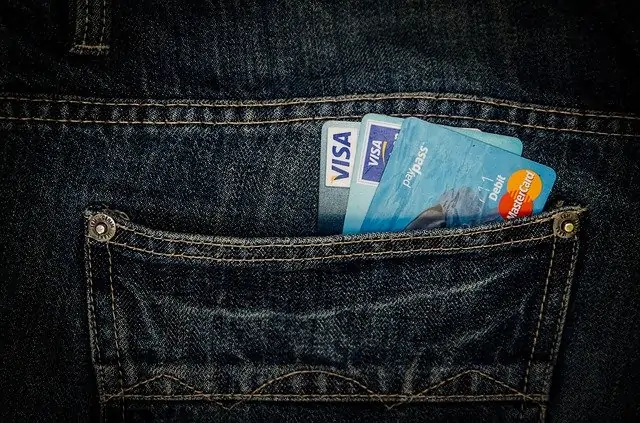This post contains affiliate links. It means that if you click on the links and make a purchase, we will receive a small commission at no additional cost to you. This allows our blog to continue providing you with free information. We only include links and products that we truly believe in. You can read the full disclosure here.
Need to transfer money internationally but don’t know what the best way is? I totally feel you! After I moved to Germany, I was paying ridiculously high fees regularly to transfer money back to my home country. Don’t make the same mistake as me!
Moving to Germany or new in Germany? Check out our Resources Page for all the help you need!
In this article, you will find different ways how you can transfer money internationally, the pros and cons of each method, and how to pick the best one based on your needs.
For busy people who have no time to read
If you don’t have time, here is a short summary:
P2P transfer services like Currencyfair or Wise (Formerly Transferwise): The cheapest and the best way to transfer money outside the Eurozone.
Money transfer operators like MoneyGram, Western Union, and Xoom: The fastest way to transfer money internationally. Expensive but no bank accounts are needed.
Bank transfer: Free if you transfer money within the Eurozone. Not ideal for transfer outside the Eurozone.
Import/ export money: No declaration needed for amount under 10,000 €.
Sending money to or from Germany
If you plan to move to Germany, you will need to transfer money from your home bank account to a bank account in Germany. For expats, the need to transfer money internationally is unavoidable. For example, you might need to send money to
- Support your cost of living in Germany
- Show money in your German blocked bank account for visa purpose
- Support your family back home
- Buy a house in Germany for self-living or investment
- Settle utility bills
- Pay for business expenses overseas
So, it is extremely important to find the best way to send money, especially if you need to transfer regularly or with large amounts. A small difference in the exchange rate can make a big difference on how much you will get in the end.
Let’s have a look below at the different ways to send money to and from Germany.
1. Peer-to-peer transfer services (P2P)
This is the cheapest way to transfer money to a non-EU country. This is how it works. The service providers have bank accounts in many different countries. Let’s say you want to send money from Germany (€) to Hong Kong (HKD). You will then pay Euros into the German bank account of the service provider. It will then calculate your money to the equivalent HKD amount based on the mid-market rate.
The mid-market rate is the exchange rate you see on Google. Your request will be matched with someone who wants to send money from Hong Kong to Germany. So, your money stays in Germany. The service provider will send money from its Hong Kong bank account to your recipient’s bank account in Hong Kong.
Advantages of using a P2P service to send money to or from Germany
It usually takes 2 – 5 working days for your recipient to receive the money. So, it is a good way to transfer money if the transfer is not urgent. Unlike the banks, the cost of using a P2P transfer service is very transparent. You can use an online calculator upfront and see exactly how much your recipient is going to get. Some banks claim that they don’t charge you any commission for a currency transfer service. The fact is that they use a worse exchange rate so that you cannot determine the cost of the transfer easily. With a P2P transfer service, you can send money to or from Germany at the mid-market rate. And you will only need to pay a small administrative fee.
I recommend the below two P2P transfer companies. Besides money transfer, both companies also offer other services on their websites. For example, you can set up a rate alert. So, you can know when the exchange rate is good to send money to or from Germany. You can see a real-time comparison on their websites between different providers. So, you know who offers the cheapest deal. You can also find different money transfer tips on their websites. You should know about these tips before sending your money to or from Germany.
Currencyfair
Currencyfair is found in 2009, with its headquarter in Ireland. I personally use Currencyfair to transfer money regularly from Germany back to my parents in Hong Kong. And I love its services. It is especially beneficial to use Currencyfair if you need to transfer a large sum of money. The transfer can be completed within a few business days. So, it is good if your transfer is not urgent.
I didn’t always use Currencyfair to transfer money back home from Germany. Like many others, I used to do bank transfers and paid ridiculous fees. For years! Now, I know that using a bank to make international transfers with different currencies is probably the worst thing that you can do. I would have saved so much money if I knew it before!
I used to pay more than 30 Euros fees to my bank to make the international transfer from Germany back to Hong Kong. With CurrencyFair, the fee is only 3 Euros no matter how much I exchange. The exchange rate it uses is also much better than the one used by the traditional banks in Germany. Thanks to the peer-to-peer approach, the exchange rate is sometimes even better than the mid-market rate!
Besides, I can also set a higher exchange rate and the transfer will only take place once this rate is reached. This is the cheapest way to send money from Germany, especially when my parents do not need my money urgently.
Currencyfair is also offering 10 free transfers to our readers now if you want to try it out for free.
Wise (formerly Transferwise)
Wise was founded in 2011 and is based in London. It was formerly called Transferwise. The company rebranded to Wise in 2021. Similar to Currencyfair, Wise allows you to send money with a very competitive exchange rate (up to 8 times cheaper than what banks would charge). The cost is fair and transparent. You can use the Wise calculator and see the cost of your transfer upfront easily.
Wise is very simple and self-explanatory to use. When you transfer money to or from Germany, you can either pay with your debit card (like when you are shopping online), or you can also do a normal bank transfer.
The good thing is that Wise supports a wide range of different currencies (even the less common currencies). It uses the mid-market rate when you transfer money to or from Germany. Its mission is to charge as little as possible and to build a world without borders for everyone.
Wise (Formerly transferwise) multi-currency account
One other thing worth mentioning is the free Wise multi-currency account. It is not only a good alternative to a bank account in Germany, but also a money-saver for frequent travelers. With the Wise multi-currency account, you can
- Hold, receive, send, and spend money
- Keep your money in more than 40 currencies
- Convert between these currencies at the real exchange rate (the one you see on google)
- Get your personal account numbers and bank details for some currencies
- Have a Euro bank account number already before coming to Germany
- Receive money for free from around the world (get paid like a local)
- Send money from your account to another bank account with a very low fee
- See the fee amount before the conversion so that there will be no surprise
You can create a free account online in minutes. There are no high fees or unfair exchange rates. You can use their price checker to see the currency conversion fees upfront. Wise is a cheap and convenient banking alternative that is available to you no matter where you live.
Open a free account with Wise now!
Currencyfair vs Wise (Formerly Transferwise)
In general, both companies offer very similar services. The cost of transferring money internationally will be one of the lowest when you use either of these two companies. If you want to transfer a large amount to or from Germany, you can use their calculators beforehand to see which one has a better deal and go for it. You can see the below table for a short overview.
Note: The below table can be moved sideways depending on your screen.
|
|
||
|
Cheap international money transfer |
✔ |
✔ |
|
Easy to use |
✔ |
✔ |
|
Mobile app available |
✔ |
✔ |
|
Support both personal and business account |
✔ |
✔ |
|
Good customer rating on Trustpilot |
✔ |
✔ |
|
Transparent costs without surprise |
✔ |
✔ |
|
Price calculator available |
✔ |
✔ |
|
Multi-currency account |
✔ |
✔ |
|
Support recurring transfers |
✔ |
Χ |
|
No maximum transfer limit |
✔ |
Χ |
|
Set your own exchange rate |
✔ |
✔️ |
|
Support currencies that are less common |
Χ |
✔ |
|
Debit Mastercard |
Χ |
✔ |
|
Batch payments to up to 1000 recipients |
Χ |
✔ |
|
|
2. Money transfer operators
You can use money transfer operators to send your money to or from Germany as fast as possible. Here is how it works. You pay a money transfer agent and give the payment instruction. You will then get a reference number which you should share with your recipient. Your recipient can go to his local money transfer agent and pick up the money in his local currency. Note that you and your recipient will need to show your ID when you send or receive money at the money transfer agent.
Advantages of using money transfer operators to send money to or from Germany
The advantage of transferring money with these operators is that your recipient can receive your money really fast, sometimes even within 10 minutes! You can send money even if you or your recipient has no bank account.
The most popular money transfer operators include MoneyGram, Western Union, and Xoom. They have money transfer agents located worldwide. So, it is convenient for you and your recipient to find one for the payment and cash pick-up.
disAdvantages of using money transfer operators to send money to or from Germany
The drawback of using these money transfer operators is that the fees can be pretty expensive (around 5-10%). The cost depends on different factors like your payment method, the currency and country, the amount of transaction, the speed, etc.
It is more expensive if you are paying with your credit card and if you are sending money in a different currency. Don’t forget that the money transfer operators may not be using a very good currency exchange rate. You have to take into account as well any loss in the exchange rate to determine your total cost.
Due to the expensive fees, I think it only makes sense to send money using money transfer operators for smaller amounts and if the transfer is urgent. For example, it is very popular for migrant workers to send money back to their home countries via these money transfer operators. The transfers are usually in cash and with a relatively low amount.
Another point to note is that scammers like to rely on these money transfer operators to commit fraud. It is because once you send the money out from Germany and it is picked up by the recipient overseas, the transaction is irreversible in general. Not every country has a good ID system and it may be easier to fake some foreign IDs. Even if you report the fraud to your local police, they may not have the authority in a foreign country. Thus, they may not be able to do much about it. Therefore, you should be careful and don’t transfer money to strangers.
3. Bank transfer
The most traditional way to transfer money internationally is through bank transfer. Many people do that because it feels safe to use a bank, or because it is the only way they know to transfer money. It takes 1 to 2 working days to transfer money internationally. But it can take longer sometimes, especially if you transfer money outside of the EU.
The issue is that banks usually charge higher exchange rates and fees. So, it is more costly to transfer money internationally, especially if the transaction amount is high. For example, if you transfer money to Germany for buying a house, or for other overseas business transactions.
Besides, the cost of bank transfer is usually not very transparent. I used to do a bank transfer to send money from Germany to my parents in Hong Kong. And I never really knew how much I had to pay and how much my parents would receive. I only knew it when I looked at the bank statement afterward. And I had no idea what the different cost components were, especially when the receiving bank also charged a fee.
Transfer money to another EU country
Under certain circumstances, it may be a good idea to transfer money internationally using your bank. This happens when you want to transfer money within the Eurozone.
When you have a bank account in Germany, you probably know that your account has a so-called IBAN number. This stands for “International bank account number”. Every bank account within the EU has an IBAN number. This is a nice system because you can transfer money within the Eurozone for free.
Simply use your online banking portal in Germany and enter the recipient’s IBAN number. Your money will then be transferred after one or two working days.
Read also: Maintenance payments (Unterhaltszahlungen) – How to deduct in your German tax return?
4. Importing and exporting money
Another way to transfer money is to bring your money physically to another country. For example, if you leave Germany and visit your home country, you can bring some cash with you for your family back home. This is not without restriction though. If you leave Germany to a non-EU country, you must declare the total amount of money to the customs station if you carry 10,000 € or more. You also need to check if your home country has any rules when you import your money there.
Besides, your family will get your money in Euro. They will have to convert your money into local currency before they can use it there. And it is another cost to consider.
Read also: Church Tax in Germany – How to Stop Paying It?
Transfer money internationally – Which method should you choose?
Here is an overview of the pros and cons of each method and when to use each of them.
Note: The below table can be moved sideways depending on your screen.
|
|
||||
|
Advantages |
– Low fees – Good exchange rate – Easy to use – Transparent process and costs – Good customer services |
– Very fast transfer – Send money without any bank accounts |
– Traditional brand name – Free transfer within the Eurozone |
– No declaration needed if you carry less than 10,000 € |
|
Disadvantages |
– Transfer can take a few working days – Quite new in the market |
– May need to go to the agents physically – Expensive – Easy for scammers to use |
– Expensive for transfer outside the Eurozone – Non-transparent costs and process – Transfer can take a few working days |
– Recipients need to convert the money into local currency – Risky when carrying a large amount of money with you – Timing is inconvenient (can only export money when you travel) |
|
When to use? |
– For non-urgent transfers with large amounts outside the Eurozone |
– For urgent transactions |
– For money transfers within the Eurozone |
– For non-urgent need – If you travel often and the recipients do not mind receiving your currency |
Transfer money internationally – What are the costs?
The cost you pay for transferring money internationally depends on several factors. For example:
- How fast is the transfer?
- What are the currencies and countries involved?
- What is the exchange rate?
- What are the transfer fees?
- How much are you transferring?
- How do you pay for the transfer?
In general, you will need to consider the following cost components.
The commission
These are the fees charged by your bank or your money transfer company. It can be a flat rate or a percentage of the transfer amount.
The exchange rates
Exchange rates fluctuate a lot based on different factors like political situation, the economy, central bank announcements, social stability, etc. Some banks in Germany advertise that they charge zero fees for international money transfers. The fact is that they give you a bad exchange rate so that you end up paying much more than you should.
The mid-market rate is the real exchange rate (the one you see on Google). To give you an example, let’s say I want to send 1,000 EUR from Germany to my parents in Hong Kong. When I look up on Google, I see that 1 EUR = 9.34 HKD. In theory, my parents should receive 9340 HKD from this transfer. A bank in Germany may charge me zero fees but offer me an exchange rate of 1 EUR = 9.16 HKD. In this case, if I transfer my money using this bank, my parents will only receive 9,160 HKD. So, there will be a loss of 180 HKD (~19 EUR) for this transfer.
The difference between the bank exchange rate vs the google exchange rate seems to be very small. However, imagine if you do a transfer with a large sum of money. This loss can be huge.
Other admin fees
Be aware that sometimes, the foreign bank will also charge you when receiving your money. This is one of the bad things about using banks for money transfers. When I sent money from Germany to my parents in Hong Kong, my German bank couldn’t tell me exactly how much the transfer would cost. It was because they did not know how much the foreign bank will charge for receiving the fund. The transfer cost was super non-transparent to me.
So, when you transfer money internationally, you need to add up all these cost components to know the total cost of your transfer.
Factors to consider before you transfer money internationally
Below are some tips when you transfer money internationally.
Transfer money with a larger amount
If you need to transfer a large sum of money to or from Germany, it is good to find a bank or money transfer company that charges you a flat fee. Also, don’t forget that the markup on the mid-market rate will have a bigger impact if you transfer a big amount.
In general, it is usually cheaper to transfer a large sum of money once, than to transfer smaller sums many times. It is because there is a minimum fee per transaction most of the time.
Also, pay attention to any minimum transfer limit. While some companies focus on transferring small amounts, some others may not let you transfer under a minimum amount. You should use a company with the best conditions for your needs.
Avoid urgent payment
When you are transferring money to or from Germany, you may have the option to choose how fast your recipients can receive the money. For example, if you use a money transfer operator, your recipient may get the money within 10 minutes. Of course, the faster the service, the higher the fee. So, if your transfer is not that urgent, do not choose the fast option.
Besides, it is good to know that if you transfer money in the morning, your recipient will likely receive your money sooner. It is because many banks have a cut-off time in the afternoon. If you initiate your transfer after the cut-off time, the bank will only start processing your transfer on the following day.
Set your own exchange rate
Some companies like Currencyfair let you set your own exchange rate. The transfer will only happen once this rate is reached. You can save some money by doing so, especially if the transfer is not urgent.
Plan your money transfer
A few months before I moved to Germany, I saw that HKD was very strong against EUR. Unfortunately, I didn’t take any action. I was overwhelmed about the move and I thought I would just think about the money exchange later. Only after I arrived in Germany, I knew that I had to show my bank account to the visa office. This was to prove that I had enough money to live in Germany. And my HKD bank account was not sufficient to obtain a visa. I had to show my money in Euros! Therefore, I was forced to exchange all my savings while the exchange rate was at its worst. I lost like 15% of what I had because of that.
Lesson learned: It is important to plan ahead. If you know that you need to transfer money, get an exchange rate alert and monitor the rate. When the rate is good, convert your money. Alternatively, set your own exchange rate so that the money transfer will happen automatically once the rate is reached.
Read also: 42 Moving Tips – Moving Locally or Internationally
Compare different offers
For non-urgent transfer, it is almost always the cheapest to use peer-to-peer transfer services like Currencyfair or Wise (formerly transferwise). To decide which one to use, simply use their calculators to check who has the best deal. Make sure you compare them at the same time. The exchange rate is changing all the time. Comparing different offers at a different time may not give you an accurate result.
You should also do your comparison every time when you need to transfer money to or from Germany. The condition may have changed since the last time you transfer money.
Look at the total cost
As mentioned before, you should take into account all the costs when you are comparing different offers. This includes the commission paid to the money transfer company, the markup on the exchange rate, and any other admin fees.
Remember that a zero-commission fee does not mean that it is the cheapest. Always take into account the exchange rate and other possible admin charges.
Customer services
When I sent money from Germany to Hong Kong with a bank transfer, the process was really non-transparent. I didn’t know what the transfer stage was. I still remember the first time when I did an international bank transfer. I went directly to the bank branch in Germany (how old-fashioned) and asked the staff there how much fees I should expect. She told me the amount of fees. And only after I sent my money, I realized that the fees were much higher than what she had told me. I went back to her the next week and asked her why. Basically, she told me something wrong before but she couldn’t do anything about it. The money was gone and the fees were charged.
That’s why I always oppose using a bank for international money transfers. The cost and process were non-transparent. Even the staff in Germany couldn’t tell me exactly what I could expect.
After I changed to Currencyfair, I never looked back. Both I and my recipient receive email notifications to inform us about the transfer process, and when we can expect the money to arrive. Besides, I see the total cost BEFORE I send the money, not after. Easy. Transparent. Cheap.
Money transfer method
Sometimes, the method you use to transfer money to or from Germany also has an impact on your cost. For example, many money transfer operators will charge more if you use a credit card to pay for the transfer. You can check the condition before and choose the cheapest option if possible.
Pin it for later:

Which method do you use to transfer money internationally? Leave a comment and share your experience below!
Moving to Germany or new in Germany? Check out our Resources Page for all the help you need!
If you found this article helpful, consider supporting this website by buying me a coffee. Every small donation helps to keep this blog alive. You can also ask me any questions here. Buy me a coffee










Great article! I was looking into how to transfer money to Canada without incurring huge bank fees! A quick question: do you send directly to your parents bank accounts? Do they invite bank fees on the amount you send? I want to take into account not just my side but my mom’s too. Thanks!
Thanks for reading! Yes I used Currencyfair to send money from Germany to my mom’s bank account in Hong Kong. No, no bank fees for my mom when she received the money. I used the calculator on Currencyfair’s website before sending the money. Then I got a confirmation about how much I wanted to send and how much my mom would receive. And my mom received exactly that amount. The reason was that I was not using my bank account in Germany to send to my mom’s Hong Kong bank account directly. Instead, I had to first transfer money to a local Germany account. Then Currencyfair would use their Hong Kong business bank account to transfer to my mom’s Hong Kong bank account. So, there was actually no cross border transaction involved and no fees on my mom’s side. Let me know in case you have more questions on this 🙂